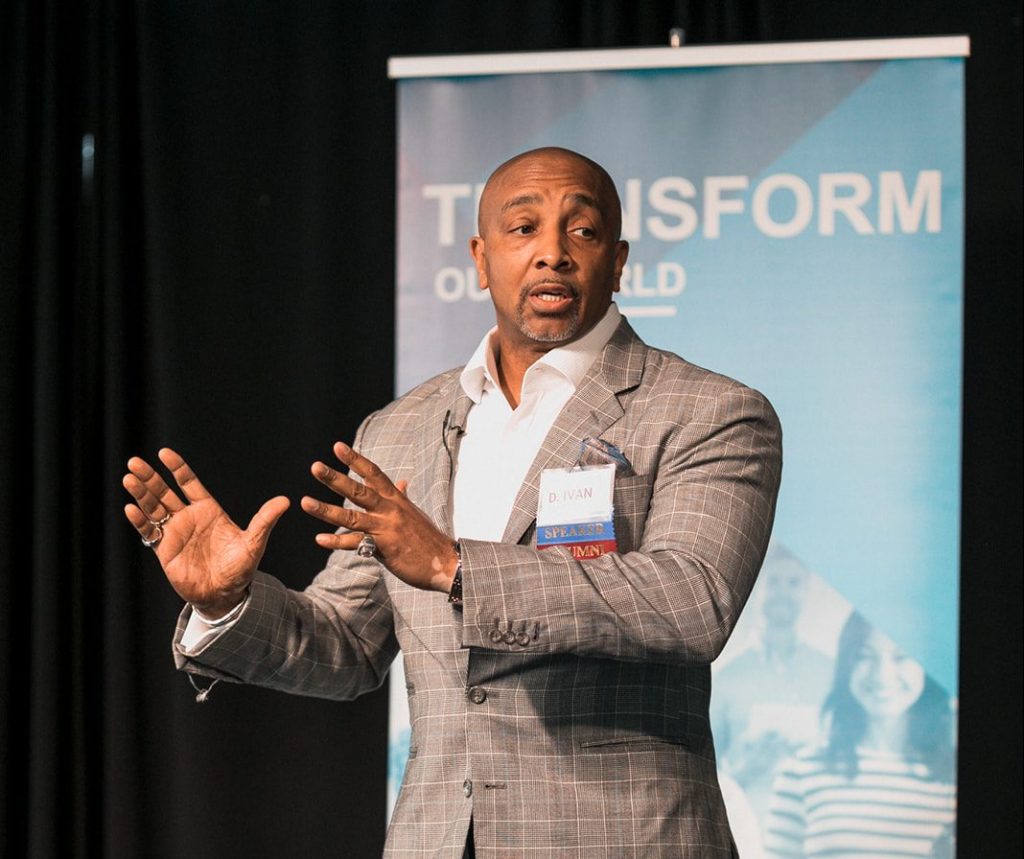
Mastering your ICF recordings
By Dr. D Ivan Young, MCC, NBC-HWC, CPDC, Ph.D.
Are you aspiring to earn your ICF PCC or MCC credential? Whether you’re a coaching school graduate, an ACC-level coach seeking advancement, or a professional transitioning into coaching, mastering your ICF recordings is a critical step in the credentialing process. Here are the top 5 mistakes coaches make when submitting ICF recordings. Such preventable mistakes coaches make when submitting their ICF recordings can lead to avoidable resubmissions and delays in earning your ICF certification.
ICF assessors evaluate recordings based on strict adherence to the ICF Core Competencies and Code of Ethics. A well-executed submission demonstrates deep listening, presence, and the ability to facilitate transformative client insights. Let’s explore the top five mistakes coaches make when submitting their ICF recordings—and how to avoid them.
Top 5 Mistakes Coaches Make When Submitting ICF Recordings
Mistake #1: Over-Structuring the Coaching Session
Being inflexible is one of the biggest mistakes coaches make when submitting their ICF recordings. Coaching should be a co-creative process, yet rigid structuring conflicts with key ICF Core Competencies such as:
- ICF Competency #3 Establishing and Maintaining Agreements – Coaching must evolve based on the client’s real-time needs.
- ICF Competency #7 Evoking Awareness – Clients need space for self-discovery rather than being led by a predefined coaching framework.
What to Do Instead
- Start with a flexible agreement and allow organic flow.
- Follow the client’s lead, not a rigid script.
- Use powerful, open-ended questions that encourage deeper reflection.
❌ Don’t force an agenda that limits genuine insights.
❌ Avoid leading questions that direct the client to a predetermined outcome.
🔹 Example: If a client introduces an unexpected insight, resist the urge to shift back to your pre-planned structure. Instead, explore what the client is revealing in the moment.
Mistake #2: Lack of Demonstrated Active Listening
Here’s another one of the biggest mistakes coaches make when submitting their ICF recordings. Many coaches concentrate more on their next question rather than truly understanding what the client is communicating in the present moment.
Why This Is a Problem
ICF assessors evaluate recordings for:
- ICF Competency #5: Maintains Presence – The coach must be fully engaged and responsive.
- ICF Competency #6: Listens Actively – Coaches must capture verbal and non-verbal cues, underlying emotions, and shifts in tone.
What to Do Instead
- Reflect back and clarify what the client is saying.
- Acknowledge emotions and underlying meanings.
- Ask follow-up questions to encourage deeper thinking.
❌ Don’t rush into your next question without fully processing the client’s words.
❌ Avoid surface-level responses that fail to show deep listening.
🔹 Example: Instead of summarizing vaguely, respond in a way that shows true engagement: “You’re feeling stuck. Can you share more about what that means for you?”
Mistake #3: Ineffective Use of Direct Communication
Coaches often struggle with being too vague or too directive, both of which can weaken a coaching session.
Why This Is a Problem
ICF evaluators look for:
- ICF Competency #8 Facilitates Client Growth – Encouraging insight and accountability without imposing personal views.
- ICF Competency #4 Cultivates Trust and Safety – Creating a space for clients to process their thoughts while receiving constructive feedback.
What to Do Instead
- Use simple, clear, and direct language.
- Ask permission before offering reframes or direct feedback.
- Challenge limiting beliefs compassionately.
❌ Don’t avoid tough conversations just to keep the session comfortable.
❌ Try not to use complex words or unclear ideas that might confuse your client..
🔹 Example: Instead of saying, “It seems you may have a subconscious aversion to commitment rooted in a potential fear of failure,” say, “Could it be that fear of failure is keeping you from committing?”
Mistake #4: Insufficient Exploration of the Client’s Agenda
Another one of the biggest One of the biggest mistakes coaches make when submitting their ICF recordings is not going deep. Some coaches fail to spend enough time uncovering what truly matters to the client, which weakens the depth of the session.
Why This Is a Problem
- ICF Competency #2 Embodies a Coaching Mindset – Coaches must be genuinely curious and open to exploring the client’s deeper needs.
- ICF Competency #3 Establishes and Maintains Agreements – Ensuring alignment with the client’s evolving goals is crucial.
What to Do Instead
- Ask probing questions to uncover underlying motivations.
- Clarify what success looks like from the client’s perspective.
- Revisit the agenda periodically during the session.
❌ Don’t assume the client’s initial response is the full story.
❌ Avoid jumping into problem-solving before fully exploring the issue.
🔹 Example: Instead of asking, “What do you want to talk about today?” try: “What would be the most meaningful takeaway for you from today’s session?”
Mistake #5: Rushing to Action Without Deepening Awareness
Mistake #5: Rushing to Action Without Deepening Awareness
Many coaches focus too quickly on solutions instead of guiding clients through meaningful reflection and insight.
Why This Is a Problem
- ICF Competency #7 Evokes Awareness – Transformation comes from deep insight, not just quick solutions.
- ICF Competency #8 Facilitates Client Growth – Clients should take ownership of their next steps.
What to Do Instead
- Give the client space to process their emotions and thoughts.
- Use silence strategically to encourage reflection.
- Help clients connect insights to their larger personal or professional goals.
❌ Don’t rush to problem-solving too soon.
❌ Avoid skipping reflection questions that deepen learning.
🔹 Example: Instead of saying, “What action will you take next?” try: “What insights are standing out to you from today’s session?”
Bringing It All Together
Avoiding the top five mistakes coaches make when submitting their ICF recordings will strengthen your ICF recording submissions, increasing your chances of a successful credential review. Coaching is an art and a science—embracing flexibility, deep listening, and client-driven exploration is key to demonstrating your competency as a professional coach.
If you’re feeling uncertain about your recordings, working with an ICF-registered Mentor Coach or enrolling in a credentialing prep program can provide invaluable support. These resources can help you refine your skills, receive expert feedback, and feel confident in your ability to pass your credentialing exam.
You’ve come this far—don’t stop now! Continue refining your craft and reach out for the guidance that can take you to the next level.
Dr. D. Ivan Young is a globally recognized Master Certified Coach (MCC) with the ICF, a National Board-Certified Health & Wellness Coach (NBC-HWC), an ICF Registered Mentor Coach, and an expert in behavioral neuroscience. With decades of experience coaching high-performing professionals, Dr. Young specializes in evidence-based coaching techniques that help clients and aspiring coaches overcome limitations and achieve transformational results.

